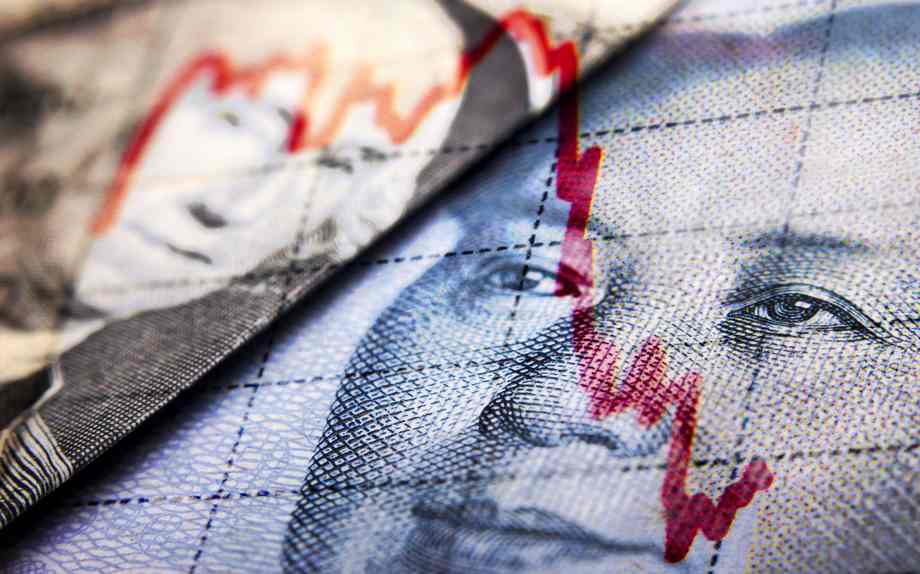
China Financial system Has Worst Quarter in 40 Years After Coronavirus Lockdowns, Main the World Into Recession
The Chinese language economic system shrank 6.8 p.c within the first quarter as lockdowns to include the COVID-19 pandemic shuttered factories and companies and plunged the world into recession.
It was the worst efficiency for the world’s second-largest economic system since Deng Xiaoping’s market reforms in 1979, in accordance with the Related Press. Bloomberg reported it was the primary contraction in China’s economic system in 28 years.
The Coronavirus outbreak first emerged within the Chinese language metropolis of Wuhan in December and has claimed over 145,000 lives around the globe, forcing governments to observe Beijing’s lead and impose crippling financial restrictions to forestall waves of sufferers from overwhelming hospitals.
The lockdowns would create the worst world recession because the Nice Despair, the Worldwide Financial Fund (IMF) mentioned this week.
“It is vitally seemingly that this yr the worldwide economic system will expertise its worst recession because the Nice Despair, surpassing that seen in the course of the world monetary disaster a decade in the past,” wrote IMF Chief Economist Gita Gopinath within the World Financial Outlook replace launched Tuesday. “The Nice Lockdown, as one would possibly name it, is projected to shrink world development dramatically.”
“Because of the pandemic,” the IMF wrote, “the worldwide economic system is projected to contract sharply by -3 p.c in 2020, a lot worse than in the course of the 2008-09 monetary disaster.”
Newsweek reached out to the Embassy of the Individuals’s Republic of China in america of America for remark.
Retail spending in China decreased by 19 p.c within the first quarter of 2020. Many companies deemed non-essential stay closed, throwing many residents out of labor. With the nation trying to mitigate the unfold of the virus, many guests from different nations are prohibited from visiting China, inflicting the tourism trade to undergo.
If the coronavirus menace lessens in severity in the course of the second half of 2020, as it’s projected to, the worldwide gross home product may nonetheless decline by 3 p.c for the yr.
Within the U.S., the 2020 gross home product is projected by the IMF to shrink by almost 6 p.c. The European area of Germany, France, Italy and Spain may see a median 7.5 p.c decline in GDP.
Monetary agency Goldman Sachs mentioned Wednesday that though the actual monetary results of the coronavirus will not be totally recognized till the second quarter of 2020, there could possibly be a little bit of an financial upswing starting in June.
“Whereas the uncertainty is substantial,” the corporate mentioned in a March report, “we anticipate the lockdowns and social distancing to lead to sharply new decrease new infections over the following month, and our baseline is that slower virus unfold and adaptation by companies and people ought to set the stage for a gradual restoration in output beginning in Could/June.”
Throughout the first quarter of 2020, Goldman Sachs reported a drop of $2.60 in earnings per share in contrast with the primary quarter of 2019. Whereas earnings per share final yr have been $5.71, the primary quarter of this yr confirmed earnings per share of $3.11.
How the world recovers financially might rely on how shortly it may reply to the coronavirus pandemic with Gopinath writing “we face large uncertainty round what comes subsequent.”
“Flattening the unfold of COVID-19 utilizing lockdowns permits well being programs to deal with the illness, which then permits a resumption of financial exercise,” Gopinath mentioned Tuesday. “On this sense, there isn’t any trade-off between saving lives and saving livelihoods. International locations ought to proceed to spend generously on their well being programs, carry out widespread testing, and chorus from commerce restrictions on medical provides. A world effort should be certain that when therapies and vaccines are developed each wealthy and poor nations alike have fast entry.”

